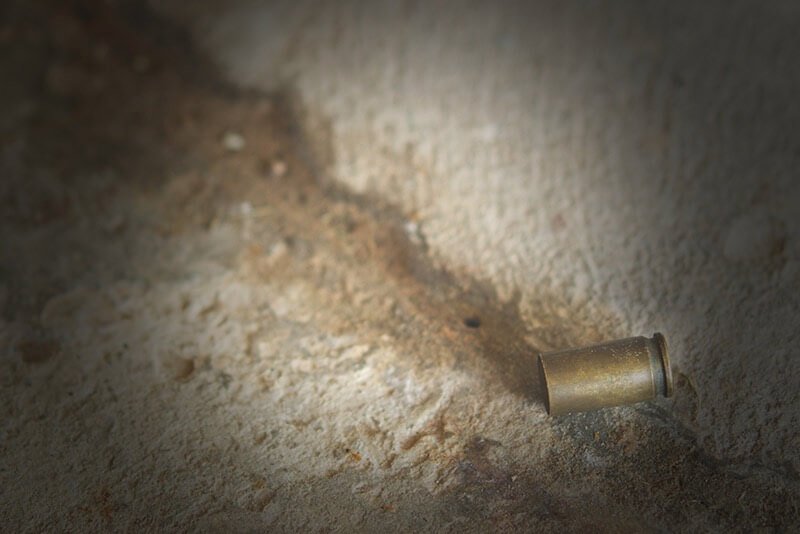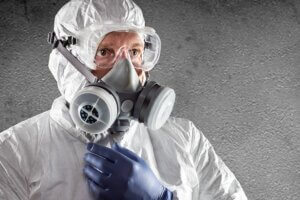BLOG

Why Crime Scene Cleaning Requires Specialised Training
Why Crime Scene Cleaning Requires Specialised Training
Today, we’re delving into a topic that many find intriguing yet complex: crime scene cleaning. It’s an essential, albeit not commonly discussed, part of the cleaning industry. As the professionals in the field, we at National Trauma and Crime Scene Cleaning (NTCSC) understand the importance of meticulous training and strict adherence to procedures when it comes to this challenging task.
Crime scene cleaning is more than just wiping up a mess; it requires a detailed understanding of biohazardous materials, careful handling of evidence, and respect for the emotional implications for those involved. For these reasons and more, specialised training is absolutely critical in this field.
Crime Scene Cleaning & Biohazards

Firstly, exposure to biohazardous materials is an inherent risk of crime scene cleaning. These materials, including blood, body fluids, and other potentially infectious materials (OPIM), can pose serious health risks if not handled correctly. Not only can they spread diseases like HIV, Hepatitis B, and C, but they can also contaminate the environment if improperly disposed of. Therefore, training is essential for both the protection of the cleaner and the preservation of public health.
Safety
In addition to biohazardous waste management, crime scene cleaners must also be trained in the safe use of chemicals and equipment. Traditional cleaning methods and household cleaners may not effectively sanitise a crime scene, and some substances may even exacerbate the situation. Specialised training provides cleaners with a deep understanding of the most effective sanitisation methods, ensuring a safe and thorough cleaning process.
Preserving Evidence

Another crucial aspect that demands specialised training is evidence preservation. As the first ones on the scene following law enforcement and forensics, crime scene cleaners play a significant role in maintaining the integrity of potential evidence. Trained professionals understand how to navigate a crime scene without disturbing evidence or causing further contamination. This process requires knowledge about the correct cleaning sequence, care in handling property, and communication with law enforcement.
Challenging Scenarios
Additionally, crime scene cleaning involves a wide range of situations – from homicide and suicide scenes to locations where unattended deaths occurred. These scenarios each come with their own set of challenges and risks, requiring training that covers a broad spectrum of potential circumstances. The more comprehensive the training, the better prepared the cleaners will be to face any situation they encounter.
Knowledgeable
At NTCSC, we prioritise in-depth and ongoing training to ensure our team is equipped with the latest knowledge and techniques. Our professionals undergo rigorous instruction on safety protocols, biohazard remediation, and effective communication. They are also trained in understanding and complying with the various regulations that govern crime scene cleaning.
Physical Challenges
The physical challenges faced by crime scene cleaners are another critical topic. The job can be physically demanding, requiring professionals to wear protective gear for extended periods, handle heavy cleaning equipment, and work in challenging environments. Training includes conditioning for these physical demands, teaching the correct handling techniques to reduce the risk of injuries, and maintaining the endurance needed to complete the job effectively.
Trauma & Emotional Aspects

Now, let’s not forget about the emotional dimension of crime scene cleaning. Dealing with a location where a traumatic event occurred demands not only technical skills but also empathy, compassion, and respect. Cleaners often interact with individuals who have experienced a profound loss or trauma. Specialised training helps cleaners provide their services while minimising additional emotional distress for those affected, contributing to a smoother healing process.
Moreover, the need for mental resilience in crime scene cleaning is an aspect that cannot be overlooked. Encountering scenes of violence or tragic loss can take an emotional toll. Specialised training provides professionals with strategies to cope with these challenges, fostering a level of psychological resilience and emphasizing the importance of seeking support when needed.
Professional Ethics
Finally, professional ethics form a significant part of the training for crime scene cleaners. These professionals are expected to perform their duties with the highest level of integrity and respect for those affected by the incident. Training includes clear guidance on the ethical responsibilities associated with crime scene cleaning, underlining the principles of respect, empathy, honesty, and fairness in all interactions.
Australia’s Trusted Crime Scene Cleaning Specialists

Adding these points helps to highlight the multi-dimensional nature of crime scene cleaning. At NTCSC, we ensure that our professionals are well-rounded in all these areas, able to handle the physical, emotional, and ethical demands of the job with skill and sensitivity.
With our comprehensive, specialised training, we strive to continue providing top-notch crime scene cleaning services that prioritise safety, professionalism, and respect for our clients and the communities we serve.
Give us a call anytime day or night for all your professional crime scene cleaning needs – we’re here to help whenever you need us.

